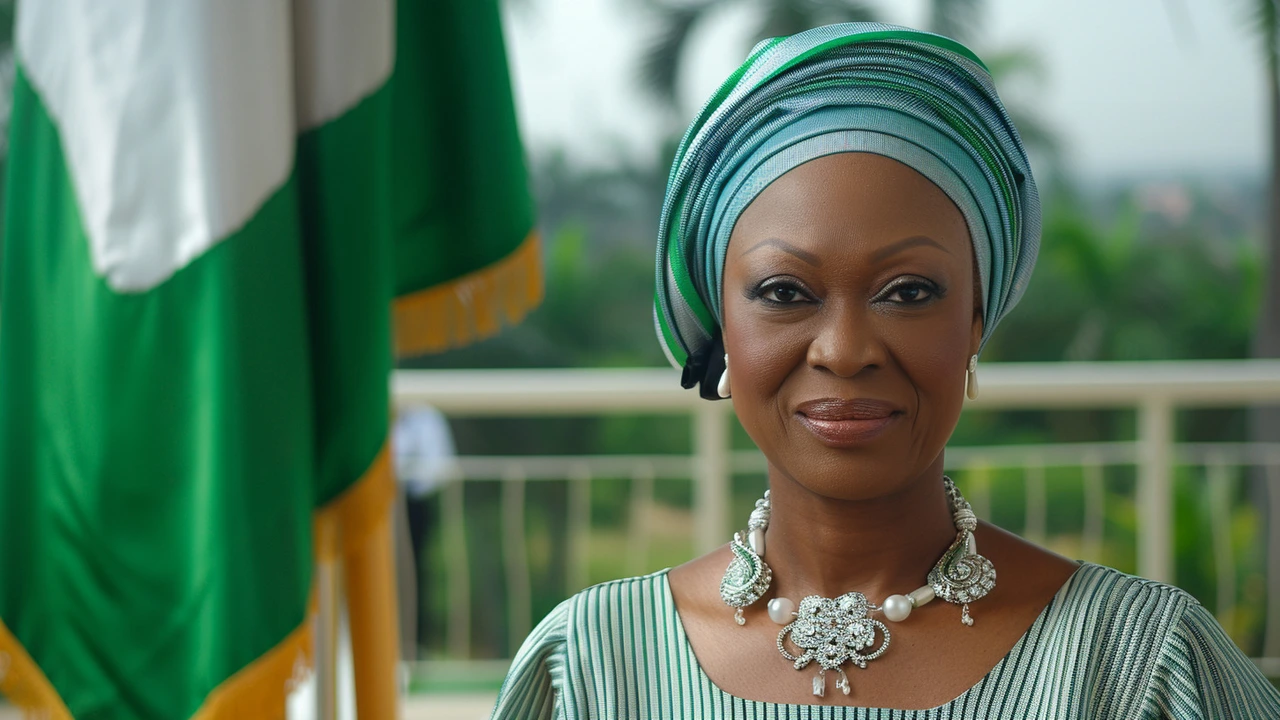Eid-el-Kabir Unity: Obasanjo Visits Future First Lady Oluremi Tinubu
Former President Olusegun Obasanjo's Visit to Oluremi Tinubu During Eid-el-Kabir
In a significant display of unity and goodwill, former Nigerian President Olusegun Obasanjo visited Oluremi Tinubu, the wife of President-elect Bola Tinubu, on the auspicious occasion of Eid-el-Kabir. This visit on one of the most cherished holidays in the Islamic calendar not only marks a moment of personal connection between two influential families but also signifies a broader gesture of peace and cooperation in Nigerian politics. Obasanjo’s visit was underscored by heartfelt expressions and shared celebrations, reinforcing the ideals of national unity and collective forward movement.
A Heartfelt Gesture
The meeting took place at the Tinubu residence, where Obasanjo was received warmly by Oluremi Tinubu, who is set to become Nigeria's First Lady. The atmosphere was filled with mutual respect and goodwill, a sight that resonates deeply with the values celebrated during Eid-el-Kabir. Obasanjo extended his congratulations to the Tinubu family for their recent electoral victory, marking the beginning of a new chapter in Nigeria’s political landscape. His kind words and presence served as a reminder that despite political differences and the heated nature of elections, the essence of camaraderie and mutual respect must endure.
Significance of the Visit
Obasanjo’s visit can be seen as a symbolic move towards fostering a unified nation. As a former President, his role in the social and political fabric of Nigeria is monumental. His willingness to reach out to the incoming First Family during a key religious festival speaks volumes about the potential for healing and cooperation in a nation often marred by political divisiveness. Notably, Eid-el-Kabir, also known as the 'Festival of Sacrifice,' embodies the spirit of reflection, gratitude, and giving, which was mirrored in this gesture by Obasanjo.
Furthermore, the visit showcased the importance of cross-party gestures and the soft power that such actions hold in bridging gaps within the country's socio-political spectrum. As Nigeria continues to navigate its path towards a stable and inclusive democracy, such moments of reconciliation and unity are not just symbolic but necessary for sustainable progress.
The Role of Oluremi Tinubu
Oluremi Tinubu, soon to take on the prestigious role of Nigeria’s First Lady, plays an integral part in the nation's future. Her warm reception of Obasanjo highlights her poise and readiness to embrace her forthcoming responsibilities. As someone who has always been in the public eye, her graceful handling of this high-profile meeting underscored her diplomatic skills and set a positive tone for her tenure. Her role will be crucial in various social initiatives, potentially influencing sectors like education, healthcare, and women's rights, building on her legacy as a Senator and public servant.
The First Lady’s role is not just ceremonial but carries significant influence. The collaboration and goodwill shared with prominent national figures such as Obasanjo will undoubtedly bolster her efforts in addressing pressing national issues. Her position provides a platform to channel positive change, and this visit might well be a precursor to more collaborative and inclusive governance.
The Broader Implications
Beyond the personal interactions, Obasanjo's visit to Oluremi Tinubu has broader implications for Nigerian politics. It highlights the importance of maintaining channels of communication and the necessity of cooperation among leaders, regardless of their political affiliations. As the country prepares for what many hope will be a transformative era under Bola Tinubu's leadership, gestures like these instill a sense of optimism among the populace. They remind us that while governance is often fraught with challenges, it is the shared sense of purpose and communal harmony that ultimately binds the nation together.
In conclusion, Obasanjo’s visit during Eid-el-Kabir is more than just a ceremonial act; it serves as a potent symbol of unity, and mutual respect, and the enduring spirit of Nigerian resilience. As the nation looks towards the future, such moments of camaraderie amongst its leaders are essential in reinforcing the values of peace, unity, and collective progress. The sight of two influential figures coming together to celebrate a significant cultural and religious holiday sends a powerful message of togetherness and paves the way for a cooperative future in Nigerian polity.
